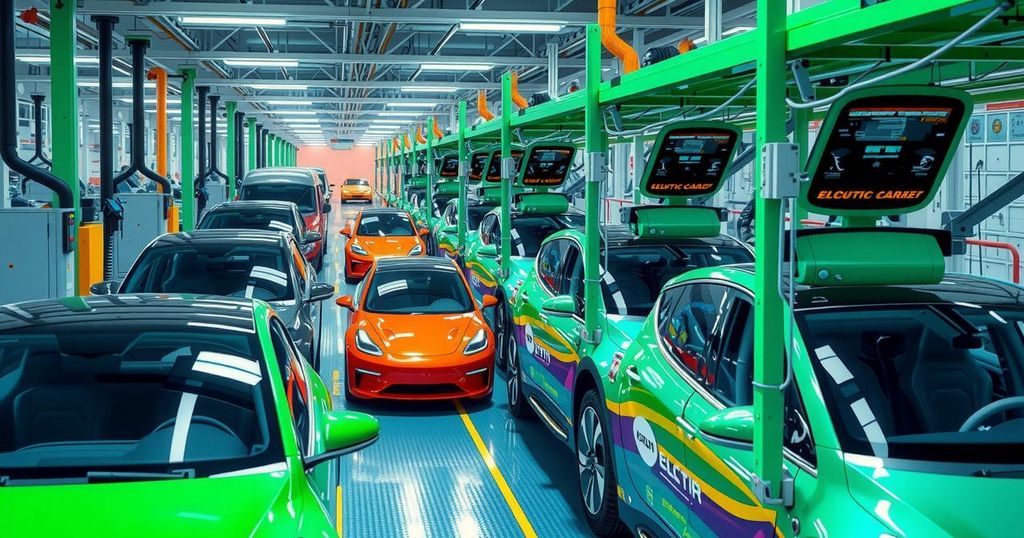BYD Surges Electric Vehicle Shipments to Brazil Ahead of Tariff Hikes

BYD has increased electric vehicle shipments to Brazil ahead of impending tariff hikes. Sales of electric and hybrid vehicles are expected to rise sharply, with BYD experiencing a significant boost last year. However, changes in the tariff structure and concerns over local manufacturing may complicate future operations for the company in Brazil.
Chinese electric vehicle manufacturer BYD has significantly increased its shipment of EVs to Brazil in anticipation of upcoming tariff hikes. As reported by Reuters, the company is responding to a rapidly growing market where sales of fully electric and hybrid vehicles are skyrocketing. In fact, sales are forecasted to rise 85 percent in 2024, reaching over 170,000 units, according to the Brazilian Association of Electric Vehicles (ABVE). BYD itself experienced a staggering growth of 328 percent in 2023, selling 76,713 units in Brazil alone.
However, this trend could soon shift as the tariff structure in Brazil is changing. Initially established to promote electric vehicle adoption, imported EVs have enjoyed a tariff-free status for about a decade. Yet moving forward, a progressive set of tariffs will kick in – starting at 10 percent in January 2024 and topping out at 35 percent by July 2026. Presently, the tariff stands at 18 percent, but it’s slated to rise to 25 percent come July. This situation has sparked concern among local automakers and has prompted lobbying from the automakers’ association, Anfavea, to accelerate these increases.
According to industry insights, Chinese manufacturers are expected to ramp up exports to Brazil by almost 40 percent this year, reaching around 200,000 units. As it stands, BYD has already dispatched approximately 22,000 vehicles to Brazil in 2023. They even utilized the world’s largest car-carrying vessel in their latest shipment efforts. By sending a substantial number of vehicles before the tariffs take hold, they are hoping to capitalize on a government program allowing toll-free imports up to $169 million for plug-in hybrids and $226 million for battery electric vehicles until July 2025.
Despite the increasing consumer interest in affordable EVs, the spike in imports is sparking unease among Brazilian automakers. They are interpreting this as a potential retreat from BYD’s longstanding goal of establishing local manufacturing operations in Brazil, particularly following issues at a former Ford plant the company acquired in 2023. The site recently became embroiled in controversy after 163 construction workers were discovered in conditions akin to slavery, leading to legal repercussions for BYD. This has pushed back the expected timeline for local production, now anticipated to be operational by December 2026.
Igor Calvet, president of Anfavea, expressed cautious support for new brands entering the Brazilian market, emphasizing the importance of producing locally to foster job creation and technological advancements. However, he voiced concerns about the implications of excessive imports on domestic investment. According to him, there has been little movement towards forming local supplier relationships in preparation for BYD’s manufacturing operations, which is typically expected at this stage.
Similarly, GWM, another Chinese auto manufacturer, is preparing to start production of its hybrid vehicles but acknowledges the challenges facing the infrastructure needed for local component production. Ricardo Bastos, GWM’s director of government relations, described ongoing discussions with around 100 local suppliers, but emphasized that the requisite infrastructure is still lacking in Brazil.
In summary, BYD is ramping up EV exports to Brazil as the company braces for significant tariff increases that could reshape its market strategy. While sales figures soar, the changing tariff structure and issues around local production underscore challenges that may affect the long-term viability of BYD’s ambitions in Brazil. Industry leaders are watching closely as this situation evolves, raising questions about local investment and the future of electric vehicle manufacturing in the region.
Original Source: macaonews.org




